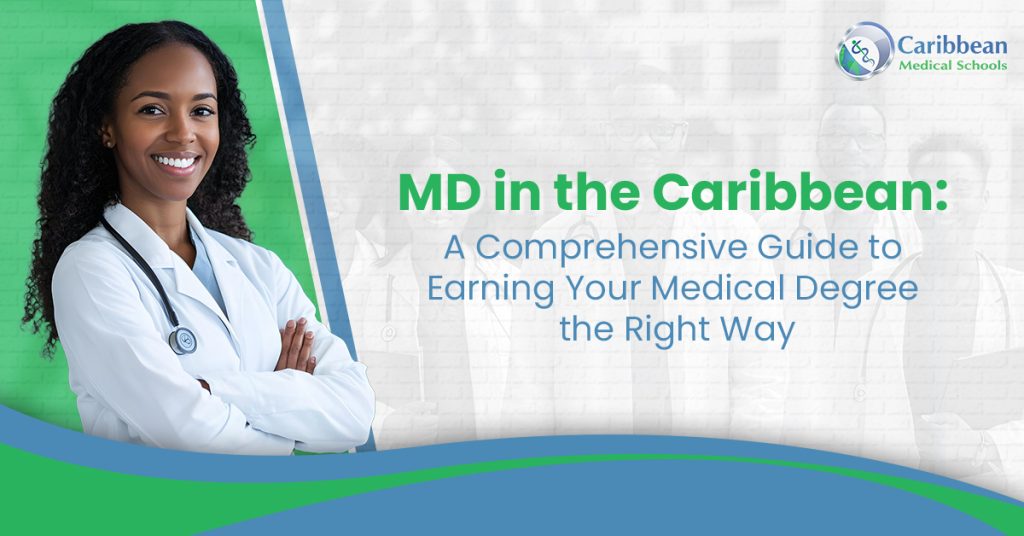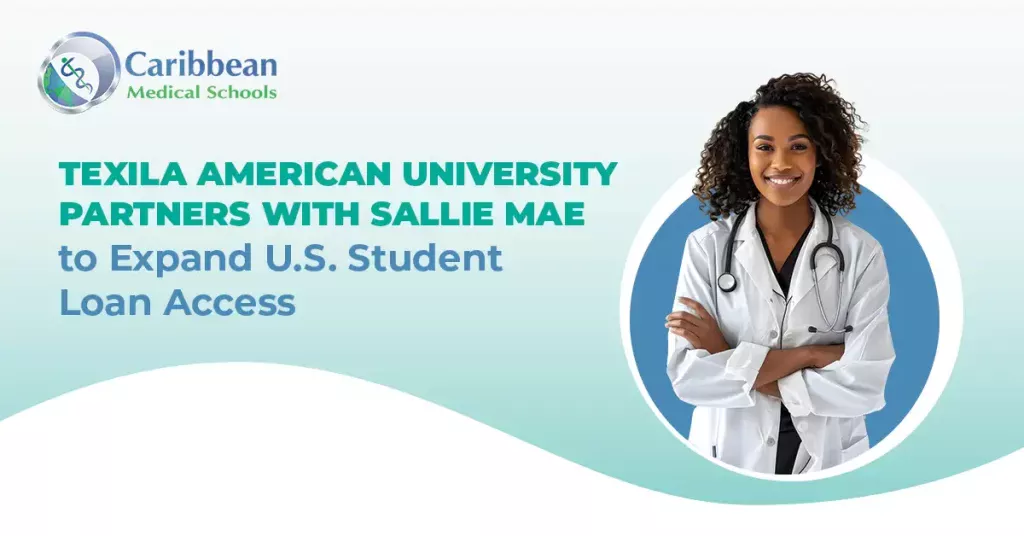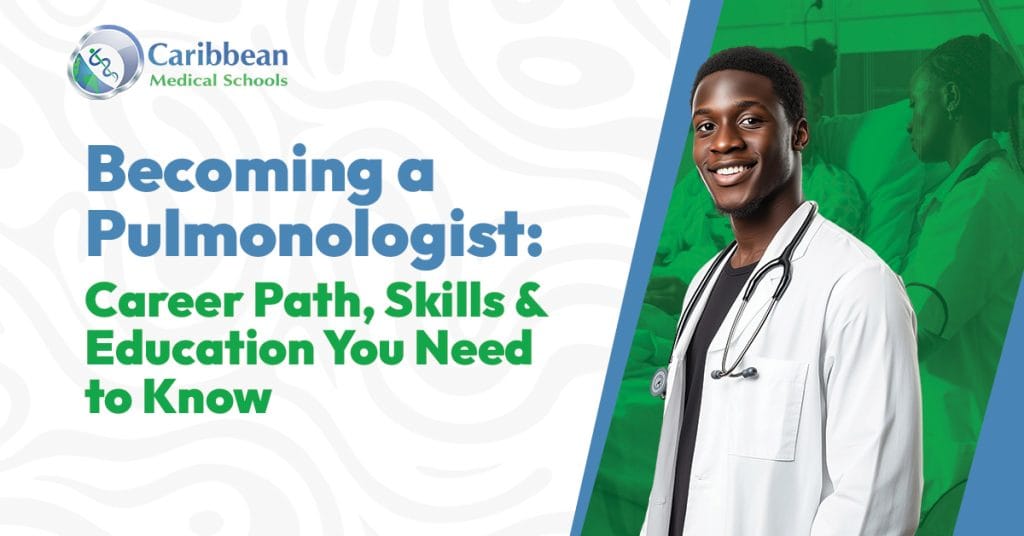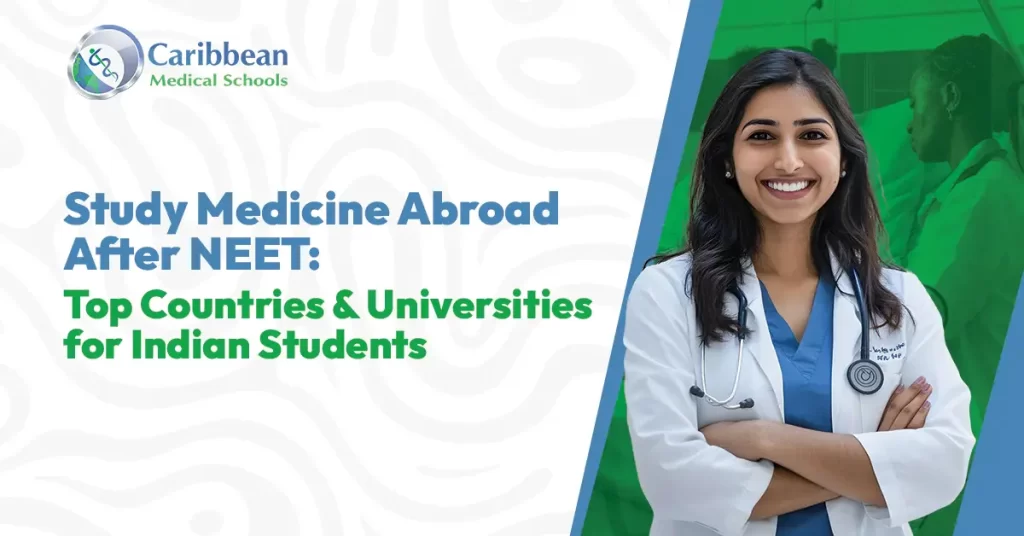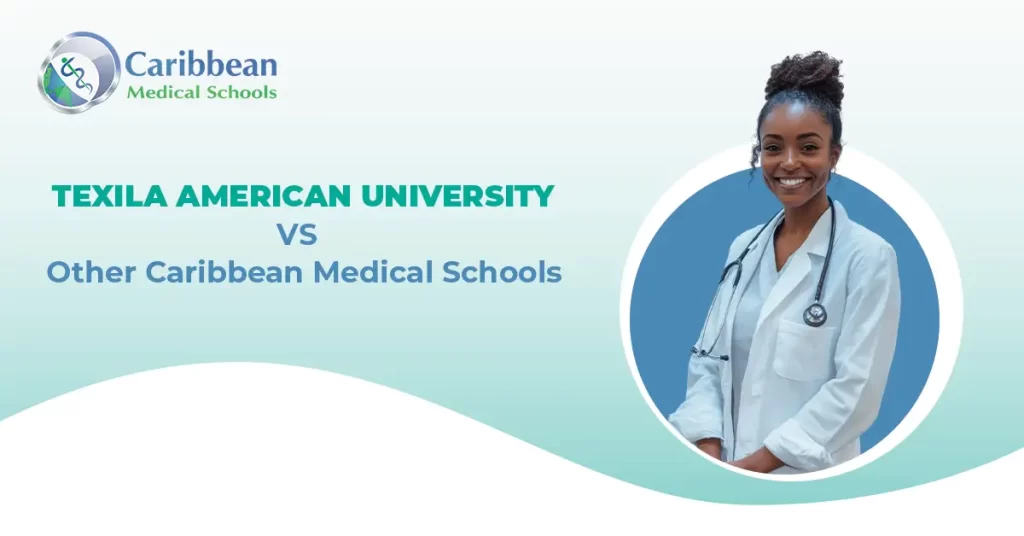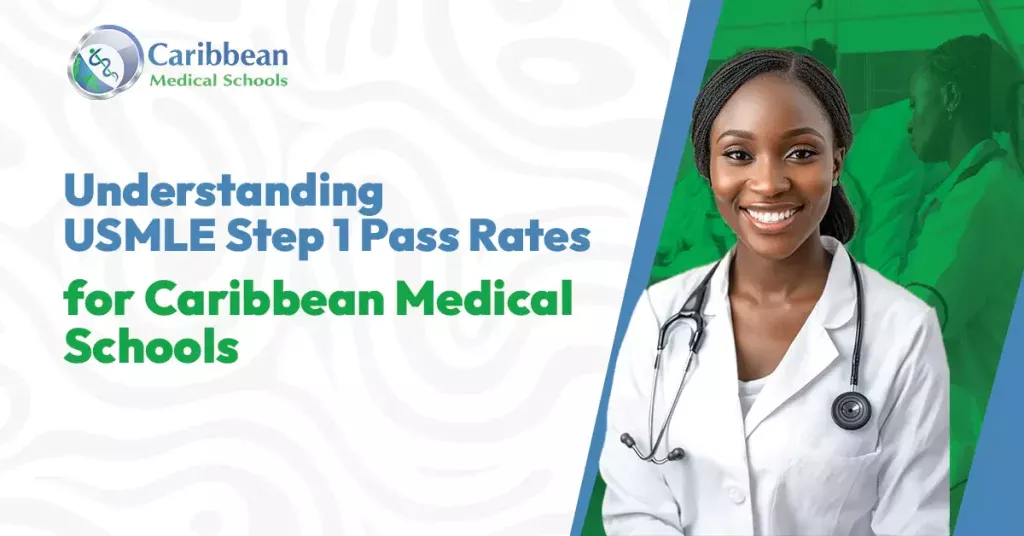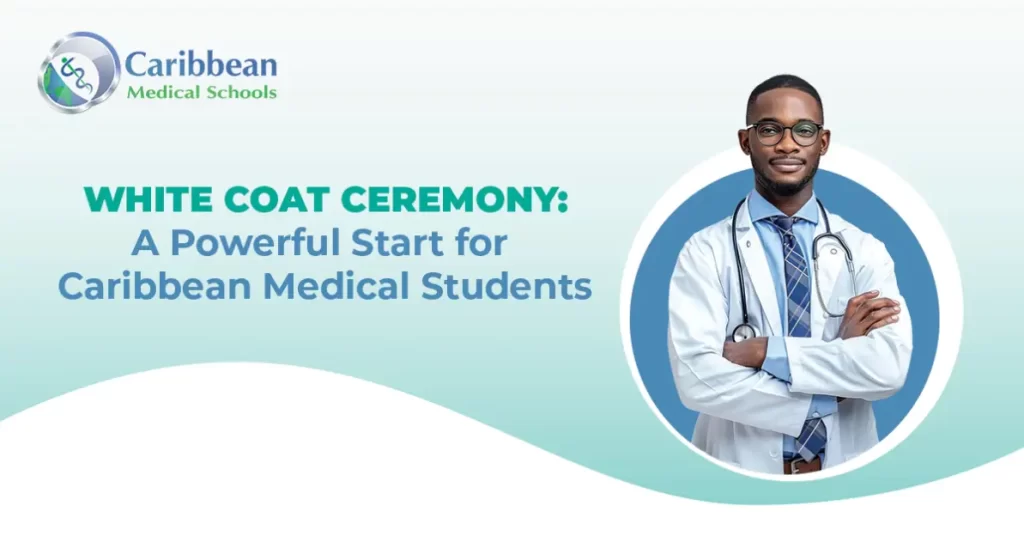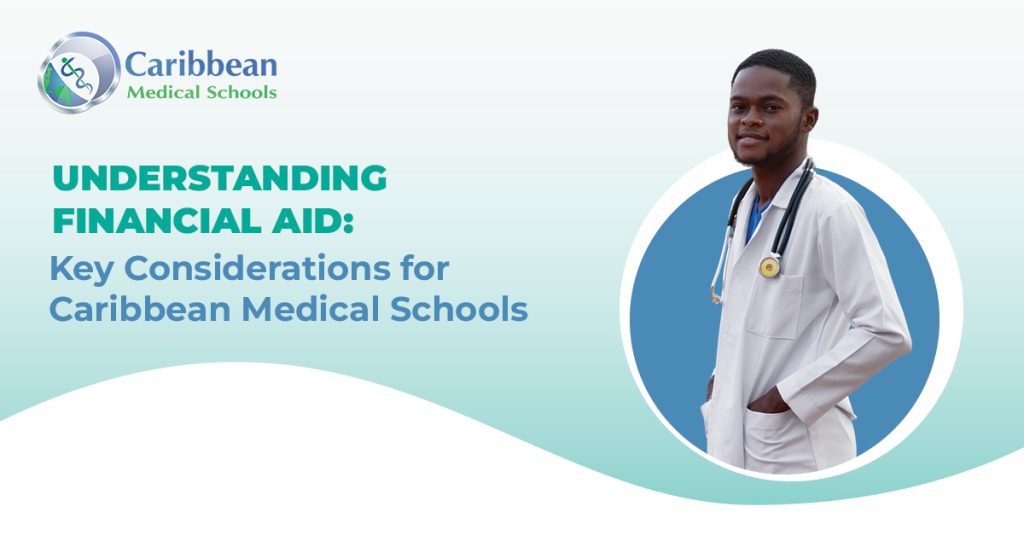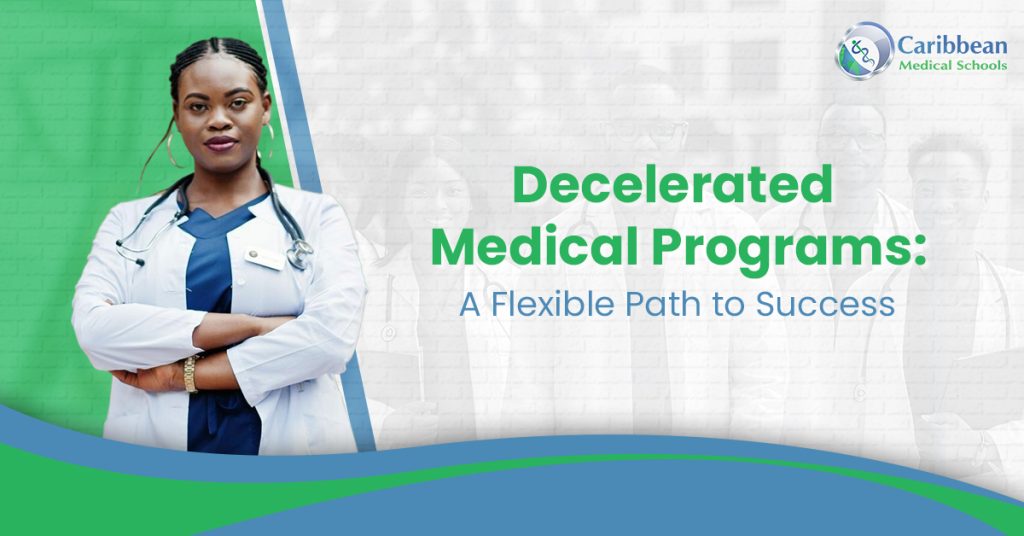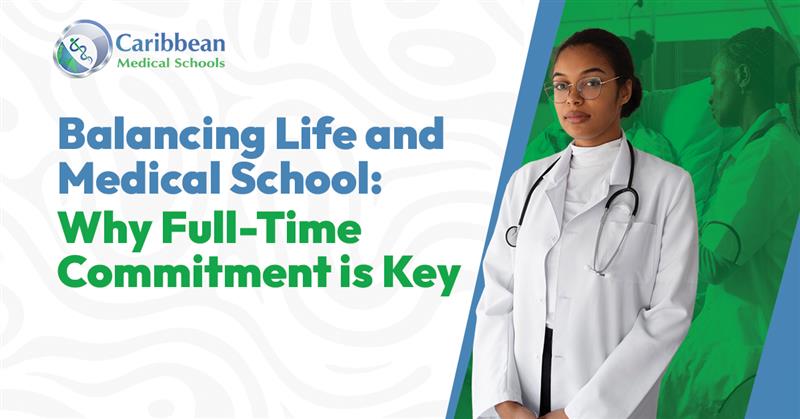Blog Summary
Pursuing an MD in the Caribbean is an excellent option for students facing competitive admissions and high tuition in the U.S. and Canada. Accredited schools offer quality education, USMLE preparation, and clinical rotations in the U.S., leading to residency opportunities. Choosing the right school is crucial, considering accreditation, USMLE pass rates, and residency placement. After graduation, students must pass the USMLE, secure a residency, and obtain licensure to practice. A Caribbean MD degree can lead to a successful medical career with proper preparation.
Introduction
Becoming a doctor is a dream for many, but getting into a medical program in the U.S. or Canada can be highly competitive. Pursuing an MD degree in the Caribbean could be the perfect alternative if you’re passionate about medicine but facing challenges with acceptance rates or tuition costs.
Caribbean medical institutions offer high-quality education, international opportunities, and a pathway to becoming a licensed doctor. However, choosing the right school and understanding the process is crucial to a successful medical career.
In this guide, we’ll explore everything you need to know about studying medicine in the Caribbean—from selecting the best Caribbean medical schools to the application process and future career opportunities.
Why Consider an MD in the Caribbean?
Pursuing an MD in the Caribbean has become an increasingly popular choice for students who want to study medicine without the intense competition of North American schools. Here’s why:
1. Higher Acceptance Rates
Medical schools in the United States and Canada have limited seats, making them highly competitive. Many Caribbean institutions provide a second chance to dedicated students who may not have gained admission elsewhere but still have the passion and potential to succeed.
2. Accredited Programs
Several accredited Caribbean medical schools follow the same rigorous curriculum as U.S. institutions. Major accreditation bodies recognize some of these, such as granting graduates eligibility to apply for residency programs in the U.S.
3. USMLE Preparation
An important aspect to evaluate when selecting a school is its success in preparing students for the United States Medical Licensing Examination (USMLE). Many Caribbean medical schools have structured programs to help students achieve high pass rates.
4. Clinical Rotations in the U.S.
Top-tier Caribbean institutions offer clinical rotations at affiliated hospitals in the U.S., giving students valuable hands-on experience and exposure to the American healthcare system.
5. Cost-Effective Option
While some Caribbean schools have tuition comparable to U.S. institutions, many are more affordable. Moreover, eligible students may have access to financial aid and scholarships.
Choosing the Best Caribbean Medical Schools
Not all Caribbean medical schools are created equal. It’s essential to research before making a decision. Here are some factors to consider:
Accreditation and Recognition
Look for accredited Caribbean medical schools that are recognized by international medical bodies, such as:
- The World Federation for Medical Education (WFME)
- The Caribbean Accreditation Authority for Medical Education (CAAM-HP)
- The Educational Commission for Medical Graduates (ECFMG) accreditation
Attending an accredited institution ensures you can apply for licensure and residency programs in the U.S. and other countries.
USMLE Pass Rates
A high USMLE Step 1 pass rate strongly indicates a school’s academic quality. The top Caribbean medical schools have well-structured curriculums to prepare students for these crucial exams.
Residency Placement Success
Check the school’s residency match rate. The best Caribbean medical schools often partner with U.S. hospitals, increasing your chances of securing a residency spot. In the 2024 residency match, 67% of U.S. international medical graduates (USIMGs), many from Caribbean medical schools, secured PGY-1 positions, demonstrating a viable pathway for aspiring doctors
Clinical Rotations Availability
Top institutions provide clinical training opportunities in the U.S., Canada, or the U.K. This experience is essential for students planning to practice in these regions.
Student Support and Resources
Seek schools that provide career counselling, mentorship opportunities, and academic support to ensure student success.
How to Apply to Caribbean Medical Schools
The application process is simple, yet it demands careful planning. Here’s a step-by-step guide:
Research and Select Schools
List the top international medical schools in the Caribbean that align with your career goals. Ensure they are accredited and have reasonable residency match rates.
Meet Admission Requirements
Typical requirements include:
- A bachelor’s degree (preferably in a science-related field)
- MCAT scores (not all schools require it)
- Letters of recommendation
- A personal statement explaining why you want to study medicine
Submit Your Application
Most schools have online portals where you can apply. Be sure to meet deadlines and provide all required documents.
Attend Interviews
Some schools require an interview as part of the admission process. Prepare to discuss your academic background, motivation, and future goals.
Receive Acceptance and Enroll
Once accepted, you’ll receive an offer letter. After confirming your seat, you can begin preparing for your medical journey.
Life as a Medical Student in the Caribbean
Studying in the Caribbean is a unique experience. Here’s what you can expect:
Academic Rigor
Medical programs are intense, requiring dedication and hard work. Expect a rigorous curriculum similar to U.S. medical schools.
Living in the Caribbean
You’ll study in a tropical paradise, but don’t be fooled—medical school demands commitment. However, the beautiful beaches and warm climate provide an excellent relaxing environment between study sessions.
Diverse Student Community
Many students in Caribbean programs come from various backgrounds, offering an enriching multicultural experience.
What Comes After Earning Your Caribbean Medical Degree?
Taking the USMLE
Graduates must pass the USMLE exams to practice in the U.S. Schools with high pass rates provide better Preparation.
Applying for Residency
Graduates from foreign medical schools for U.S. students must apply for residency through the National Resident Matching Program (NRMP). A strong academic record and clinical experience can improve your chances.
Obtaining Licensure
Once you complete residency, you must apply for Licensure in your chosen state or country. Some regions may require additional exams or training.
Final Thoughts: Is an MD in the Caribbean Right for You?
Earning an MD in the Caribbean is a viable pathway for students passionate about medicine but facing challenges with traditional admissions. However, Selecting the right school is essential to guarantee a seamless path toward becoming a licensed physician.
With the proper preparation, attending one of the top Caribbean medical schools can open doors to a successful medical career, whether in the U.S., Canada, or other parts of the world. If you’re ready to apply to Caribbean medical schools, start researching accredited institutions and take the next step toward achieving your dream.

